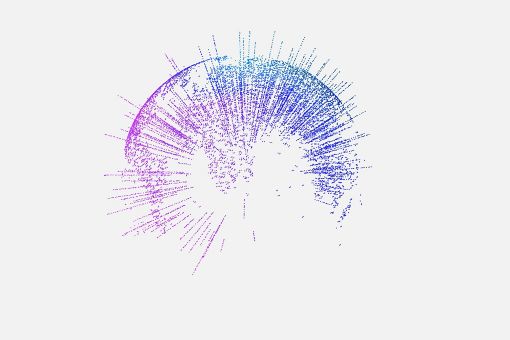KPMG partnered with The University of Queensland to lead a world-first deep dive into global attitudes towards Artificial Intelligence (AI).
Artificial Intelligence is transforming everyday life – chat bots, social media, facial recognition, fraud prevention, and so on – yet it is still widely misunderstood.
This study investigates the public’s trust and attitudes towards AI across 17 countries, highlighting key drivers of trust, community expectations of the management and governance of AI, the perceived benefits and risks of AI, and how people feel about its use at work.
At a glance
| Key findings from the report include: |
1. AI trust and acceptance
But younger generations and the university educated are more accepting. People have more faith in the capability and helpfulness of AI systems, and are more sceptical of their safety, security and fairness.
2. How well do people understand AI?
What’s more, 68 percent of people report using common AI applications, but 41 percent are unaware AI is a key component in those applications.
3. Benefits of AI
On average, only one in two people believe the benefits of AI outweigh the risks. People in India, China, South Africa and Brazil have the most positive views of the benefits of AI. Conversely, Australia, Canada, UK and Japan are the least positive.
4. Risks of AI
Cyber security is rated as the top risk globally, followed by harmful use of AI, job loss (especially in India and South Africa), loss of privacy, system failure (particularly in Japan), deskilling, and undermining human rights.
5. Expectations around AI regulation
Many expect some form of external, independent oversight and only 39 percent believe current governance and regulations are enough to protect people and make AI use safe.
6. Principles of responsible AI
7. AI in the workplace
Most people (55 percent) are comfortable with the use of AI at work to augment and automate tasks in managerial decision-making. People actually prefer AI involvement to sole human decision-making, but they want humans to retain control.
Except in China and India, most people believe AI will remove more jobs than it creates.
8. Shifting attitudes
Trust in AI has increased in each of these countries from 2020 to 2022.
More people have heard of AI in 2022 (78 percent) than in 2020 (62 percent) and are more likely to identify AI use in common applications, but there was no change in subjective understanding.
There was no change in the perceived adequacy of AI governance and regulation, nor confidence in entities to develop, use and govern AI.
AI attitudes: How does Australia compare?
Overall, Australian attitudes towards AI mirrored other Western countries like the UK, Canada, and France, where fear and worry about AI are dominant emotions.
Less than half of Australians are comfortable with the use of AI at work and only a minority of Australians believe the benefits of AI outweigh the risks.
There is a gap in perceptions across age and education in Australia, with 42 percent of Gen X and Millennials trusting AI compared to 25 percent of older generation Australians. We see similar numbers when comparing the university educated (42 percent) with those who don’t have a degree (27 percent).
Finally, people in Australia and Japan had notably lower interest in learning about AI compared to other countries.
Interestingly, Australia is among the nations listed as the most fearful of AI, with many Australians believing its risks outweigh the benefits. However, more Australians have heard of AI and have more trust in AI in 2022 than they did in 2020.
About the study
This survey is the first deep-dive global examination of the public’s trust and attitudes towards AI use, and their expectations of its management and governance.
KPMG partnered with The University of Queensland to survey over 17,000 people from 17 countries leading in AI activity and readiness within each region: Australia, Brazil, Canada, China, Estonia, Finland, France, Germany, India, Israel, Japan, the Netherlands, Singapore, South Africa, South Korea, the United Kingdom, and the United States of America.
Credits
University of Queensland Researchers
Professor Nicole Gillespie, Dr Steve Lockey, Dr Caitlin Curtis and Dr Javad Pool.
The University of Queensland team led the design, conduct, analysis and reporting of this research.
KPMG Advisers
James Mabbott, Rita Fentener van Vlissingen, Jessica Wyndham and Richard Boele.
Acknowledgements
We are grateful for the insightful input, expertise and feedback on this research provided by Dr Ali Akbari, Dr Ian Opperman, Rossana Bianchi, Professor Shazia Sadiq, Mike Richmond, and Dr Mory Namvar, and members of the Trust, Ethics and Governance Alliance at the University of Queensland, particularly Dr Natalie Smith, Associate Professor Martin Edwards, Dr Shannon Colville and Alex Macdade.
Key contacts
| Get in touch with KPMG for more insights on artificial intelligence, or contact the team below: |
Related insights
| Insights and services related to artificial intelligence, data and ethics |



















